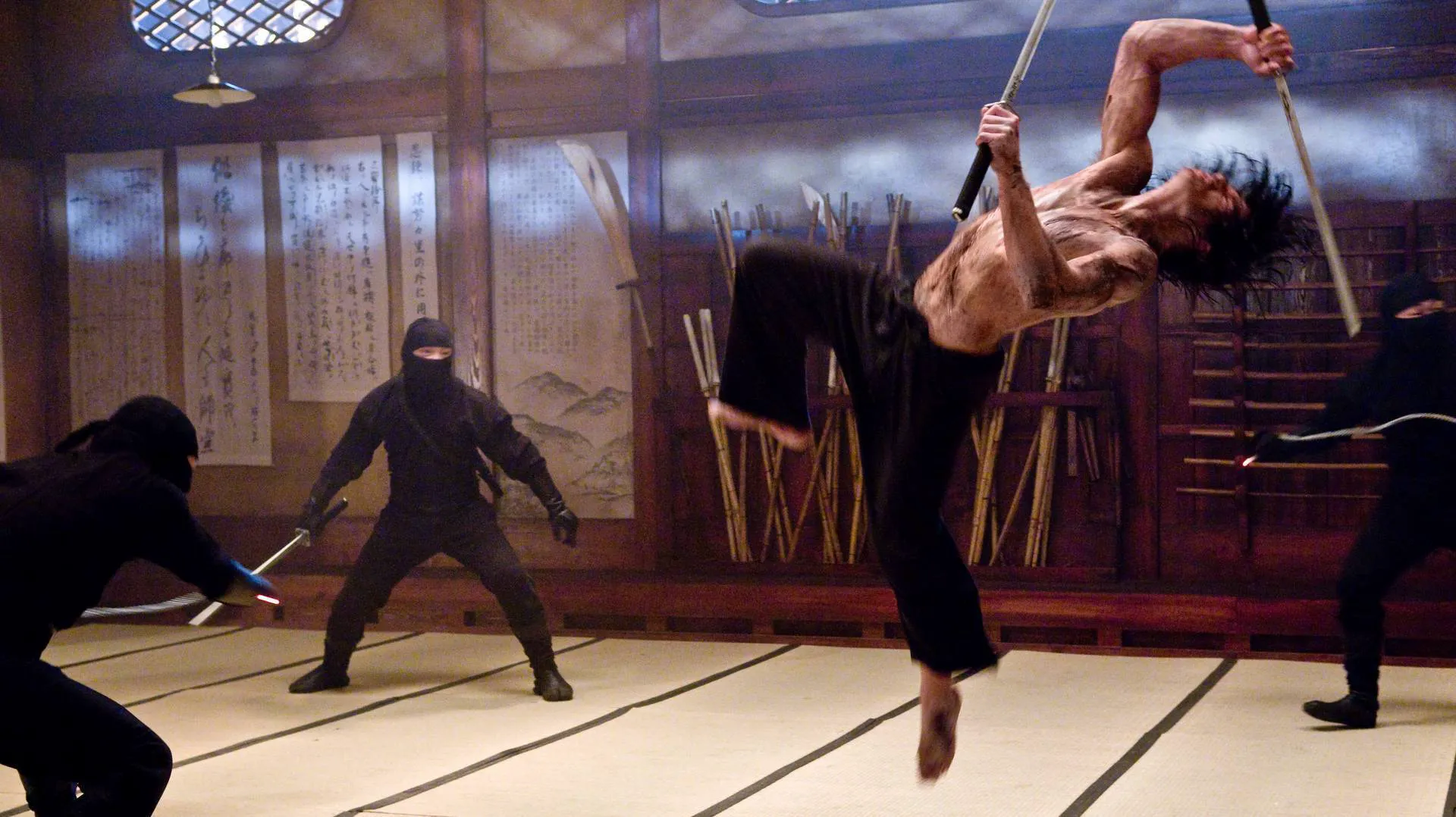One might view it as abstract art – crimson on black.
Europol agents Maslow and Mika Coretti, operating in Berlin, stumble upon a mysterious organization of hired assassins and are forced to confront the reality that mythical ninjas actually exist. Meanwhile, a young ninja named Raizo becomes embroiled in a deadly conflict with the powerful Ozuna clan that raised him, leaving a trail of carnage in his wake, sparing only Maslow and Mika.
You know what a well-trained ninja does first when approaching an enemy? They cut the lights, because they can fight blind. This simple tactic results in colossal savings on special effects: the film is awash in blood, but the budget is only $40 million.

Most of the fight scenes in “Ninja Assassin” are filmed as graphically precise battles of very fast and vicious rats: something swiftly whistles in the dark, crimson blots and severed limbs (arms? legs? tails?) fly across the screen. Then, the dark-skinned detective Mika finally reaches for the light switch and, with eyes wide with astonishment, examines an oriental version of Vereshchagin’s painting “The Apotheosis of War.” And in the corner, a slender Korean youth, picturesquely scarred by opponents, materializes and calmly says: “We need to get out of here, they’ll be here in three minutes.”
A montage cut: new black shadows in masks and with samurai swords on their backs crawl across the facade of the building. If Tarantino hadn’t made “Kill Bill,” the Wachowskis – “Speed Racer,” and James McTeigue himself – “V for Vendetta,” “Ninja Assassin,” which gathered all the clichés of one of the most worthless genres of category B, would have looked much more radical. But Tarantino had already declared his love for films about Eastern martial arts, the Wachowskis showed that a film can be a pure and perfect form without any content at all, and “V for Vendetta” still had a pretty powerful ideological charge. Therefore, the new joint work of McTeigue and the Wachowskis (as producers) does not qualify as a manifesto and can be recommended mainly to fans of sadomasochistic aesthetics and everyone who nostalgically remembers the era of video stores.
Among other things, they showed the film “Revenge of the Ninja,” in the characteristic nasal translation of the title, one could hear some kind of “meat cutter,” and this absurd word seems to perfectly fit what the Wachowskis and McTeigue did.